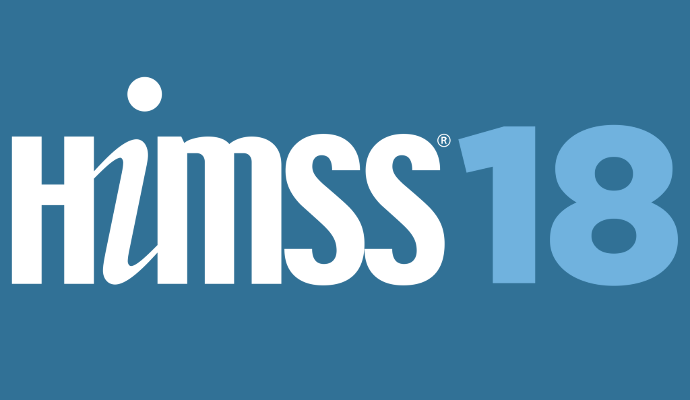Machine Learning, Network Monitoring Top HIMSS 18 Releases
HIMSS 18 announcements include healthcare specific network monitoring solutions and improved machine learning tools to help improve workflow.

Source: Xtelligent Media
- HIMSS18 is currently underway in Las Vegas and many vendors have released new health IT infrastructure focused solutions to help healthcare organizations transition more smoothly in their digital transformation.
New vendor partnerships and improvements in artificial intelligence (AI), machine learning, data management, and network monitoring are taking place in the City of Lights. HITInfrastructure.com has gathered some of the top headlines below.
Commvault and Hewlett Packard Enterprise (HPE) announced their new strategic partnership to deliver Commvault’s healthcare backup and recovery solutions to HPE customers. Pre-validated versions of Commvault’s healthcare solutions will now be integrated on HPE infrastructure.
These solutions will protect and manage EHR data as well as medical images, so the data is never lost in the event of a cyberattack or natural disaster.
“Increasing amounts and types of mission-critical data, stricter regulatory requirements and the growing threat from ransomware and other cybersecurity attacks are increasing the costs and complexity of data management and protection for healthcare organizations,” HPE Director of Storage and Big Data Product Management Patrick Osborne said in a statement.
READ MORE: HIMSS Finds Improved HIT Network Security Infrastructure
“With this agreement, our healthcare customers now have a one-stop shop for finding HPE integrated and certified Commvault solutions that help them to simplify data management and protection, increase data availability, reduce costs, and minimize regulatory compliance risk, while also empowering them to better activate data for valuable insights.”
Orion Health released Amedeus Intelligence, its new machine learning service. The tool is designed to reduce operating costs and improve patient care by minimizing wasted resources.
The tool uses machine learning to predict patient costs and readmission risks, and analyzes clinical and financial outliers to help organizations improve their decision-making skills to get the most out of their resources. Amedeus Intelligence combines and processes multiple datasets from various data sources to predict multiple outcomes.
"We have yet to see the true impact of machine learning on healthcare,” Orion Health CEO Ian McCrae said at HIMSS18. “The last decade has been focused on integrating IT systems and capturing massive amounts of information about patients and their environments, the next decade will be to connect all that data and use machine learning for daily healthcare decisions, driving improved care, operational efficiencies, and cost effectiveness."
The easier it is for organizations to identify data trends using machine learning the less resources will be wasted.
READ MORE: Cloud, Internet of Things, Top HIMSS18 HIT Infrastructure Topics
Paessler unveiled its network monitoring solution, PRTG Network Monitor, that includes sensors for Digital Imaging and Communications in Medicine (DICOM) and HL7 protocols. IT and medical systems can be monitored simultaneously through one dashboard.
"The move to value-based care and the data transfer it requires, the adoption of EHRs, and innovations occurring in disciplines like imaging have fundamentally changed the healthcare IT landscape," Paessler Senior Developer Johannes Liegert said in a statement.
"Having visibility over your traditional IT infrastructure is no longer enough. You must also be able to monitor the connected hardware and software used throughout clinical settings for everything from MRIs to appointment setting and billing,” he continued. “Healthcare IT professionals can now work with a comprehensive view of everything that is happening at any given point in time across their entire connected healthcare IT ecosystem and be the first to know if a problem arises."
The DICOM and HL7 sensors allow entities to monitor hospital information systems, laboratory information management systems, radiological information systems, and picture archiving and communication systems (PACS).
Continuous monitoring protects healthcare networks from internal and external threats. Adding healthcare specific sensors gives organizations better visibility over their health IT systems and how they work with their other enterprise systems. This visibility lets entities catch threats before they infiltrate the network.
Veritas Technologies announced two new appliances: Veritas Flex Appliance and Veritas Access Appliance. Both are data management solutions that use a software-defined storage approach to data management for on-premises storage.
“Data is the life-blood of our organization and the need for data backup and recovery, as well as long-term retention, is important for maintaining governance and achieving positive medical outcomes,” Mount Sinai Health System Director of Storage and Wintel Anthony Galletta said in a statement.
“This new infrastructure platform will allow us to deploy a solid, tested, optimized and fully-supported solution that can be implemented quickly, with underlying hardware that is capable of being independently upgraded in the future,” he added. “This makes for an environment to ensure patient data is protected and helps us meet digital compliance.”
Veritas Flex focuses on using container technology to consolidate multiple data management deployments in order to simplify data protection. Veritas Access emphasizes on improving long-term retention and archiving, and cost-effective storage.
